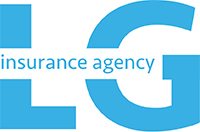Commercial auto insurance is a type of insurance that helps businesses protect themselves financially in the event of an accident or loss involving a company-owned vehicle. This type of insurance is important for businesses because it can cover the costs of damages to company vehicles, as well as third party damages and injuries that may occur as a result of a company vehicle being involved in an accident. Without commercial auto insurance, a business may be forced to pay for these expenses out of pocket, which can be a significant financial burden. In addition, many states require businesses to have commercial auto insurance in order to operate company-owned vehicles on the road. Therefore, it is important for businesses to understand the different types of commercial auto insurance available and how they can help protect against specific risks.
Liability coverage
One of the most common types is liability coverage, which covers third party damages and injuries that may occur as a result of an accident involving a company-owned vehicle. To explore this type of insurance in greater detail, here are some additional points to consider:
- Covers third party damages and injuries that may occur as a result of an accident involving a company-owned vehicle
- Can include both bodily injury liability and property damage liability
- May be required by law in certain states
Collision coverage
Collision coverage is another option, which covers damages to a company’s own vehicle in the event of a collision. Here are some additional points to consider:
- Covers damages to a company’s own vehicle in the event of a collision
- Can help pay for repairs or replacement of the vehicle
- May have a deductible that must be paid before the coverage kicks in
Comprehensive coverage
Comprehensive coverage is also available, which covers non-collision damages to a company’s own vehicle, such as damages caused by natural disasters or theft. Here are some additional points to consider:
- Covers non-collision damages to a company’s own vehicle, such as damages caused by natural disasters or theft
- Can help pay for repairs or replacement of the vehicle
- May have a deductible that must be paid before the coverage kicks in
In addition to the basic types of commercial auto insurance, such as liability, collision, and comprehensive coverage, there are several other coverage options that businesses may want to consider. Rental reimbursement coverage can help cover the cost of a rental car while a company vehicle is being repaired due to a covered loss. Medical payments coverage can help cover medical expenses for the driver and passengers of a company vehicle in the event of an accident, regardless of who is at fault. Uninsured/underinsured motorist coverage can help cover damages to a company’s own vehicle and injuries to the driver and passengers if the accident was caused by an uninsured or underinsured motorist. Here are some additional points to consider for each of these coverage options:
Rental reimbursement coverage:
- Covers the cost of a rental car while a company vehicle is being repaired due to a covered loss
- Can help keep a business running smoothly during the repair process
- May have a daily or maximum limit for reimbursement
Medical payments coverage:
- Covers medical expenses for the driver and passengers of a company vehicle in the event of an accident, regardless of who is at fault
- Can help cover the cost of medical bills, such as ambulance fees and hospital stays
- May have a limit on the amount of coverage provided
Uninsured/underinsured motorist coverage:
- Covers damages to a company’s own vehicle and injuries to the driver and passengers if the accident was caused by an uninsured or underinsured motorist
- Can help protect against financial losses in the event of an accident with an uninsured or underinsured driver
- May have limits on the amount of coverage provided
Example case studies on the value of commercial auto coverage
Example 1: Liability Saving the Day
One example of how commercial auto insurance can help protect businesses is through the use of liability coverage. Consider the case of a business owner who purchased liability coverage and was involved in a car accident with a third party. Without liability coverage, the business owner may have had to pay for the damages out of pocket, which could have resulted in a significant financial burden. However, with liability coverage in place, the business owner’s insurance policy covered the damages and helped avoid a larger financial loss. This case illustrates the importance of having the appropriate commercial auto insurance in place to protect against potential risks. By understanding the different types of coverage available and choosing the options that are most appropriate for their needs, businesses can better protect themselves financially in the event of an accident or loss involving a company-owned vehicle.
Example 2: Putting the “comprehensive” in comprehensive coverage
Another example of how commercial auto insurance can help protect businesses is through the use of comprehensive coverage. Consider the case of a business owner who purchased comprehensive coverage for their company’s fleet of vehicles. One of the vehicles was damaged in a non-collision event, such as a natural disaster or theft. Without comprehensive coverage, the business owner may have had to pay for the damages out of pocket, which could have resulted in a significant financial burden. However, with comprehensive coverage in place, the business owner’s insurance policy covered the damages and helped avoid a larger financial loss. This case illustrates the importance of considering all potential risks when selecting commercial auto insurance coverage options, and the value of having comprehensive coverage to protect against non-collision damages.
In conclusion, commercial auto insurance is an important consideration for businesses that operate company-owned vehicles. There are several different types of commercial auto insurance available, including liability coverage, collision coverage, and comprehensive coverage, which can help protect against specific risks. It is important for businesses to understand the different coverage options and choose the ones that are most appropriate for their needs. In addition, it is important to regularly review and customize your commercial auto insurance policy to ensure that it continues to meet the evolving needs of your business. By doing so, you can better protect your business against potential financial losses and keep your company running smoothly.


